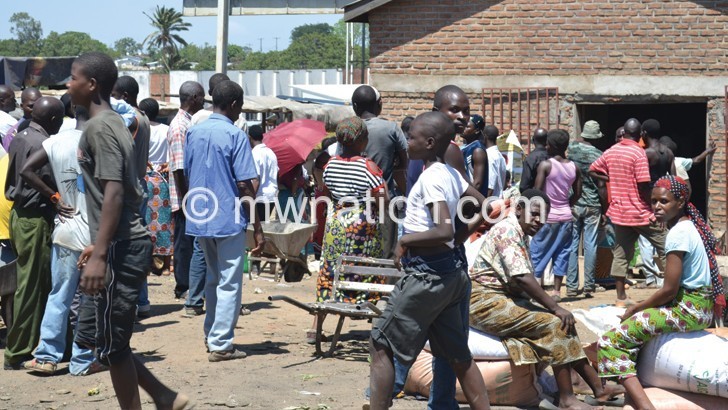Govt snubs calls to review FISP
Government has snubbed calls from some stakeholders to review the Farm Input Subsidy Programme (Fisp) during the 2018/19 financial year.
In the 2018 Economic and Fiscal Policy Statement published by the Ministry of Finance, Economic Planning and Development, government said it will maintain the number of beneficiaries at 900 000 farming households in the 2017/18 national budget.
“Under resilient livelihoods and agricultural systems, government will continue to implement Fisp. Government intends to maintain the number of beneficiaries and level of contribution of farmers per bag of fertiliser,” reads the statement in part.

During this year’s pre-budget consultation meetings in March, various stakeholders called for the abolishment of the programme, arguing that it drains the public purse and has not produced the intended results.
The stakeholders proposed that the funds meant for Fisp should be injected in other priority areas such as irrigation and industrialisation.
According to the Malawi Vulnerability Assessment Committee (Mvac) assessment, as at August 2017, the number of Malawians in need of food aid until the next harvest was at 836 766 while humanitarian food was estimated at K4.5 billion. This was, however, 87 percent down from the previous year’s 6.6 million people in need of food aid.
Published information on the Food and Agriculture Organisation (FAO) on Malawi’s food security, as at November 2017,
indicates that food security conditions are anticipated to worsen later in 2018 due to the foreseen below average harvest.
Civil Society Agriculture Network (Cisanet) Fisp budget tracking report for the period between 2011/12 financial year and 2015/16 financial year shows that Fisp in Malawi has reached over 7.4 million households spending over K251.3 billion on 0.74 million metric tonnes (MT) of fertilisers, 37 300 MT of maize seed and 14 900 MT of legume seeds.
In the 2016/17 national budget, Fisp was allocated K33 billion while in the 2017/18 fiscal year, it was allocated K33.15 billion. On the other hand, the number of beneficiaries was reduced from about 1.5 million households to 900 000.
The 2017/18 allocation, for instance, is enough to fund the whole health sector which was allocated K36 billion during this financial year.
Economics Association of Malawi (Ecama) executive director Maleka Thula has maintained Ecama’s stand on phasing out Fisp and channelling the funds to irrigation development and commercial farming to be more efficient and effective.
“We know that government may take time to redirect its policy on Fisp, but the earlier we do it the better for the country,” he said.
Moses Mkandawire, executive director of Church and Society Programme, a development arm of the Church of central Africa Presbyterian (CCAP) Livingstonia Synod said Fisp is expensive for the country and all that the synod was asking was for the programme to be revised and support the elderly only if government still wanted to implement it.
In his sentiments, Parliamentary Committee on Agriculture chairperson Joseph Chidanti Malunga said it was unfortunate that government is not listening to different calls to review the programme, a development that is worrisome.
“We understand that this is an election year and Fisp is a political programme which nobody would want to take a chance and abolish it now. But all we wanted was for them to reduce the number of beneficiaries annually and not phase it out abruptly,” he said. n




